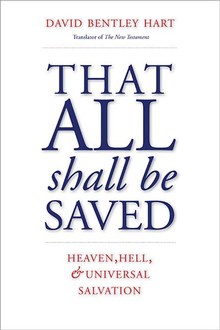What we believe about life after death shapes our actions, priorities, and choices in the here and now.

“You’re OK, Eleanor. You’re in the Good Place,” the celestial being Michael (Ted Danson) gently intones to Eleanor (Kristen Bell) in the opening scene of NBC’s sitcom The Good Place.
Eleanor, we quickly find out, does not belong in the Good Place. A self-proclaimed “Arizona dirtbag,” her limitless self-absorption and utter lack of empathy meant her life left nothing but pain and inappropriate t-shirts in its wake. Fortunately for Eleanor, one of the Good Place’s perks is soul mates. Hers—Chidi Anagonye (William Jackson Harper)—happens to be a recently deceased professor of moral philosophy. Under Chidi’s tutelage, Eleanor begins to reexamine her earthly life in light of the moral and ethical teachings of some of history’s greatest thinkers. She even discovers that Aristotle does not, in fact, rhyme with Chipotle.
As becomes clear in the ensuing episodes, the existence of a Good Place presumes—or perhaps necessitates?—the existence of a Bad Place. Even though The Good Place eschews any traditional religious creeds, its vision of a dualistic, post-mortem eternity will be familiar enough to most Christians. After death, the thinking goes, some people experience an eternal existence of bliss (soul mates and limitless frozen yogurt, say) while others endure eternal torment and punishment (up to their necks in a volcano full of scorpions).

This bifurcated eternity has been the standard imagination of Western popular culture since the Late Middle Ages (thanks, Dante) after being integrated into formal Christian theology following Augustine.
The heritage and heft of the idea of Heaven and Hell as eternal destinations make it our default position, a strong current cutting deep grooves in the rocks of Western civilization; carrying along preachers, theologians, ordinary churchgoers, even comedy writers; wearing down most who would dare question it.
Against this current swims the imposing figure of David Bentley Hart, an Eastern Orthodox philosopher, theologian, and Biblical scholar. Writing in the face of at least fifteen hundred years of received tradition, Hart argues in his forthcoming work, That All Shall Be Saved: Heaven, Hell, and Universal Salvation, that “if Christianity taken as a whole is indeed an entirely coherent and credible system of belief, then the universalist understanding of its message is the only one possible.”
In Hart’s understanding, the bad place we commonly call hell only exists as those parts of creation (including recesses of the human soul and psyche) that have not yet yielded to the transfiguring light of God’s love.
(Hart would be quick to point out that even the English term “hell” has no equivalent in the Biblical languages, but is frequently and misleadingly used to translate disparate terms such as Hades, Sheol, Gehenna, and Tartarus—not all of which are bad places.)
Since God is the supreme Good and the creator of all things, all things must ultimately be restored back to God.
Since God is the supreme Good and the creator of all things, all things must ultimately be restored back to God. In order that “all shall be well, and all manner of things shall be well,” even the most rebellious provinces of creation must be brought under God’s loving authority.
This is not to say that Hart is utopian. Human sin and our consequent estrangement from God are quite real for Hart, but this estrangement cannot be eternal (although, he seems to suggest, it may persist after death through a period of purification and restoration). “No matter how far any soul may venture from God in all the ages, Christ has already gone further out into that ‘far country,’ has borne all the consequences of anyone’s alienation from God and neighbor, and has eternally opened the way back into the sanctuary of the Presence.”
Hart is, of course, not the first to make such claims. For camaraderie and cogency in his thinking, he leans heavily on early universalists of the Church, including Origen, Maximus, and (most prominently) Gregory of Nyssa. Hart also writes approvingly of the theology of George MacDonald and nods to the universalist tendencies of Søren Kierkegaard.
One fairly recent attempt to articulate a universalist understanding of Christianity is not mentioned in Hart’s work. Rob Bell’s controversial Love Wins inaugurated an entirely new genre of Evangelical literature: the “Farewell” tweet. (No need to thoughtfully engage an argument when you can simply dismiss argument and arguer alike with a few keystrokes.) Another round of similarly dismissive tweets is likely forthcoming when Hart’s book is released.
Proponents of the “infernalist” (Hart’s term) position—the belief that God will consign some (most?) rational beings to experience eternal, conscious torment as a just consequence for dying apart from Christ—will undoubtedly be tempted to “Farewell” Hart and his work. The belief in a literal, eternal hell has been part and parcel of most Christian doctrinal formulations for centuries; many Christians wouldn’t recognize a belief system without it as authentically orthodox.
Hart is well aware of this. Anticipating potential responses to his book, Hart concedes that, “There is no obvious way of winning at this game or even significantly altering the odds. Even so,” he continues, “I intend to play it to the end.”
Those who disagree with Hart should make the same commitment: to think through to the very end the spiritual, moral, ethical, and communal implications of believing—or disbelieving—in hell (or its slightly less draconian cousin, annihilation).
If true Christian faith requires a belief in the existence of hell (as an expression of God’s sovereignty or as the sine qua non of free choice), then Christians face a perpetual danger of becoming inured to the idea of billions of people being tortured for eternity. Such indifference, even in the abstract, dulls our moral senses and diminishes our compassion. “If we allow the possibility that even so much as a single soul might slip away unmourned into everlasting misery,” Hart cautions, “the ethos of heaven turns out to be ‘every soul for itself’—which is also, curiously enough, the ethos of hell.”
If true Christian faith requires a belief in the existence of hell, then Christians face a perpetual danger of becoming inured to the idea of billions of people being tortured for eternity. Such indifference, even in the abstract, dulls our moral senses and diminishes our compassion.
Throughout the four meditations that comprise the book, Hart highlights a tendency in Christian thinking to require followers of Christ to be more loving, caring, and compassionate than they imagine their God to be. Rejecting traditions that suggest the suffering of the damned will heighten the bliss of the saved, Hart challenges Christians to consider whether we are truly being conformed into the likeness and image of Christ. If Christ was willing to endure the Cross to save sinners, how could his followers relish the idea of sinners being tormented in hell?
While all thinking about the afterlife is, by definition, speculative, what we believe about life after death shapes our actions, priorities, and choices in the here and now. In Hart’s view, the misguided doctrine of hell arose, in part, as a tool of imperial power following the alignment of the Church with the State after Constantine.
In the centuries that followed, Christians unleashed hell on earth through conquest, crusade, and colonization—hellish experiences that continue to reverberate through society today. Could it be that a reflexive acceptance of traditional dogma disfigured the Good News, causing Christians to forget that “in Christ God was reconciling the world to himself, not counting their trespasses against them” (Ephesians 5:19)?
Through careful philosophical reflection and moving (if frequently pugnacious) prose, Hart offers an illuminating counterpoint to the received wisdom of post-Augustinian Christian tradition.
Readers who adhere to the Reformation’s ideal of sola Scriptura may find the first third of the book maddening for its lack of Scriptural specificity. However, in his second meditation, Hart rewards readers with a cornucopia of New Testament passages (presented both in Greek as well as his own occasionally idiosyncratic English translation) that, read apart from the tradition, paint a far more hopeful view of God’s salvific work than is often recognized.
Even if one rejects Hart’s conclusions, his writing acts as a shock to the conscience, calling out (and perhaps beginning to exorcise) what he calls the “casual callousness that is so frequent a concomitant of deep piety.”
Hart has given the church—even the segments of it which will most vociferously disagree with him—a wonderful gift. By forcing careful Scriptural and ethical reflection instead of unthinking acceptance, Hart acts as a morally sensitive Chidi to the indifferent Eleanors of contemporary Christian theology. Hart challenges Christians to consider the ways we’ve yielded to self-absorption or failed to display empathy when conceptualizing eternity. In exploring these questions, we have an opportunity to become a little more like Christ, maybe even coming a little closer to living together in a good place.
 Jon Carlson serves as Lead Pastor of Forest Hills Mennonite Church outside of Lancaster, PA. Jon and his wife, Lyn, are raising three kids who seem to have endless supplies of energy. Follow him on Facebook, Twitter, or Instagram.
Jon Carlson serves as Lead Pastor of Forest Hills Mennonite Church outside of Lancaster, PA. Jon and his wife, Lyn, are raising three kids who seem to have endless supplies of energy. Follow him on Facebook, Twitter, or Instagram.
That All Shall Be Saved: Heaven, Hell, and Universal Salvation will be released by Yale University Press on Sept. 24.
The Good Place returns to NBC on Sept. 26.



One Response
Outstanding reveiw.